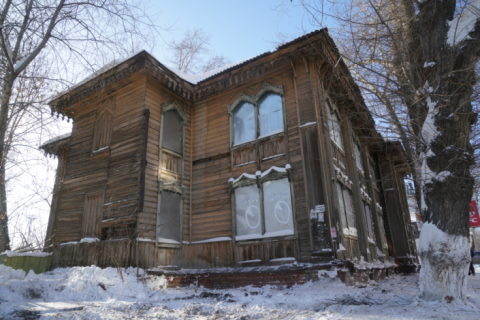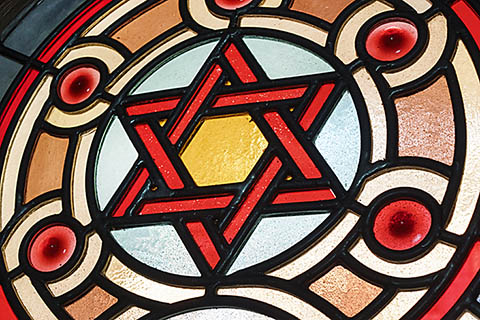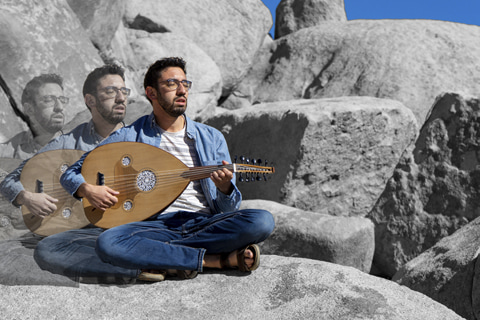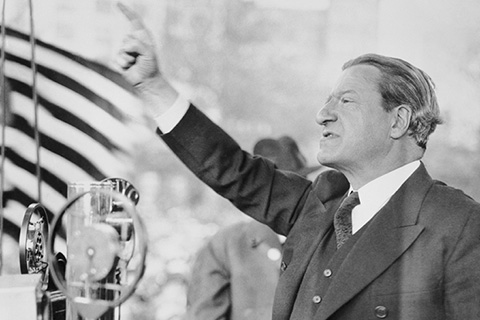Preserving America's Jewish Heritage
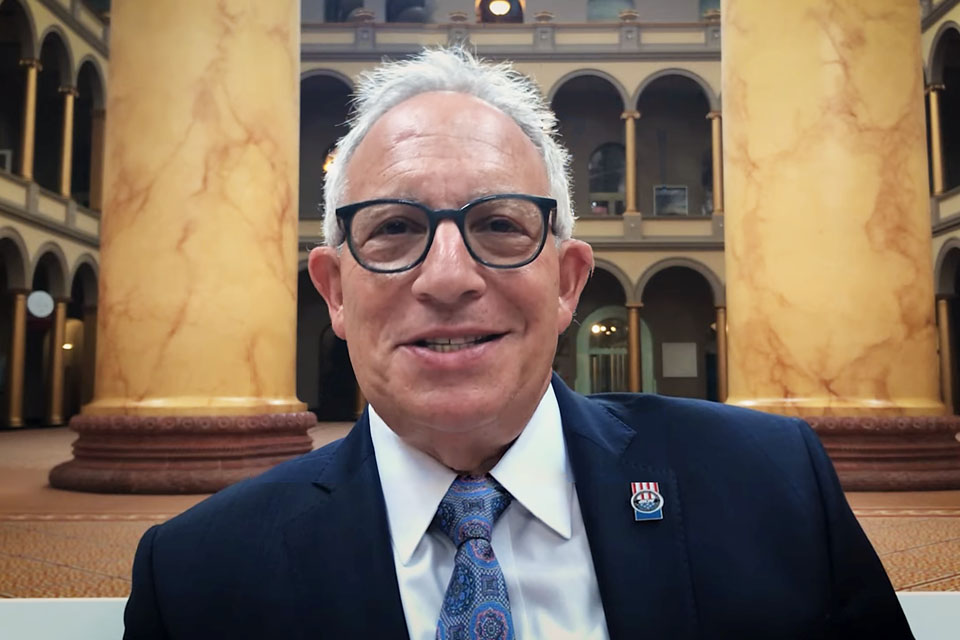
Tannenbaum at the National Preservation Awards Ceremony in 2021.
Nov. 16, 2022
By Lawrence Goodman
"Even with our concern for climate change and the natural environment, we must not forget the critical importance of our cultural environment," said Jordan Tannenbaum '72.
For much of his career, Tannenbaum has focused on trying to get Americans to appreciate, protect, and preserve that cultural environment, by which he means the country's cultural and historical heritage, sites, and institutions.
After college, he went to work for the Advisory Council on Historic Preservation (ACHP), an independent federal agency located in Washington, D.C., as a summer intern. In June 2021, President Biden appointed him the organization's vice chairman.
Since 2004, he has also served as the chief development officer for the U.S. Holocaust Memorial Museum in Washington, D.C. Tannenbaum has also held fundraising positions at Brandeis and Georgetown universities, the Wharton School of the University of Pennsylvania, and Hillel International.
TJE spoke with Tannenbaum about his career and his current efforts to create a national historical park in Chicago to honor Julius Rosenwald, the late 19th- and early 20th-century philanthropist and part-owner of Sears, Roebuck and Company. In partnership with Booker T. Washington, Rosenwald built quality schools for African American children in the Jim Crow South
If successful, it would be the first national historical park honoring an American Jew.
How did your time at Brandeis excite your passion for history?
I arrived at Brandeis with extensive experience gained through an AP history class at my high school in Morristown, New Jersey. As part of the class, we conducted archaeological research at a local colonial site. It was no surprise that I chose to major in history.
Once at Brandeis, [University Professor and Earl Warren Professor of History, Emeritus] David Hackett Fischer had an enormous influence on me. I enrolled in an honors course with him and wrote a paper on Native Americans in the Plymouth colony. His mentorship was invaluable in honing my research skills and critical thinking.
The other person who influenced my career was [the late Meyer and Walter Jaffe Professor of American Civilization and Politics] Larry Fuchs. Larry stressed the repetition of certain themes in social history and their importance in informing the future.
Thanks to the inspiration of these professors, I was able to fulfill my passion for history by joining the ACHP a month after graduation. I will be forever grateful to Brandeis for helping to prepare me for that opportunity.
You also had a life-changing experience during a 1971 Brandeis program in Israel.
Yes, as part of the Jacob Hiatt Institute in Israel, I took courses in the sociology of Israel, its history and politics, and of course, an ulpan [intensive study of Hebrew]. The experience helped me understand Israel's history and political evolution and Israel's centrality to the global Jewish community. In addition, it strengthened and invigorated my ties to Judaism.
While in Israel, I undertook a research project studying the change in Israeli Arab village life from before the founding of the state of Israel in 1948 through the 1970s.
I also lived in a village, Deir al-Asad [in northern Israel], for about a week with the family of an Arab student I met at the University of Haifa and returned for several visits during the time I spent in Israel.
While in the village, I was included in all of their life-cycle events (weddings, birthdays, etc.) and also had a number of political discussions with my friend and other village members. To them, the founding of the state of Israel was certainly not a moment for celebration.
They called it the Nakba [Arabic for catastrophe] and shared stories of having to flee from their homes. My friend was only several days old when his mother bundled him up and fled to Lebanon with other members of her family. The fact that I was American and would be going back to America made it easier for them to discuss these issues.
I kept in touch with my friend for several decades, visiting him most recently in 2005 while on a business trip for the Holocaust Museum. At that point, he had become mayor of Deir-al-Assad.
What drew you to historic preservation?
You can get a sense of history by reading about it, but nothing is as compelling as the "power of the place" — being where that history occurred. You can read about the Battle of Gettysburg or the 1864 massacre of hundreds of Cheyenne Indians at Sand Creek, Colorado, but when you go there and walk the terrain where the events happened, the feeling is visceral.
Tell us a little about your fundraising efforts for the U.S. Holocaust Memorial Museum.
In January 2022, we reached the billion-dollar goal for our "What You Do Matters" campaign. The campaign will end in September of 2023. I anticipate that we will add a substantial amount of funds by that date. For several years we were the largest fundraising campaign in the Washington, D.C., area.
The areas that have benefitted from the campaign include the David and Fela Shapell Family Collections, Conservation, and Research Center, the Jack, Joseph and Morton Mandel Center for Advanced Holocaust Studies, the William Levine Family Institute for Holocaust Education, the Simon-Skjodt Center for the Prevention of Genocide, and the David M. Rubenstein National Institute for Holocaust Documentation.
What made you want to get involved in the Julius Rosenwald and Rosenwald Schools National Historical Park Campaign?
After seeing the documentary "Rosenwald," I was invited to lunch by Dorothy Canter, a former trustee and longtime volunteer for the National Parks Conservation Association. Dorothy was putting together a group of individuals interested in publicizing and honoring the incredible work Rosenwald accomplished with Booker T. Washington.
Through that partnership, Rosenwald helped fund the construction of nearly 5,000 schools in the early 20th century in 15 southern states. The late congressman from Georgia, John Lewis, and poet Maya Angelou were among the many renowned graduates of Rosenwald Schools.
Interestingly enough and related to my profession, Rosenwald was significant in the evolution of philanthropy. He was an early proponent of the challenge grant, developing a formula where a third of each new school was funded by a grant from Rosenwald's foundation, one-third by the local school board, and a third by the local community (often by providing the materials and/or the labor).
The Rosenwald Fund also provided early support for the NAACP and supported programs to enhance medical care for African Americans.
Rosenwald also contributed to numerous Jewish charities and served on the board of Hull House [a settlement house co-founded by activist Jane Addams in 1889 in Chicago]. And he was the founding donor for the Museum of Science and Industry, Chicago.
He truly embodied the Jewish concept of tikkun olam [repairing the world].
